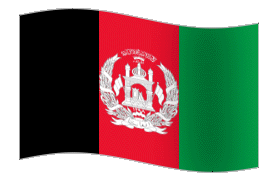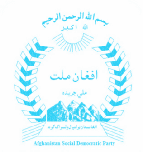TALKING WITH THE INSURGENTS
By: Ajmal Shams
Amid an increasingly worsening security situation in Afghanistan, there has been news of aggressive efforts by the government to hold direct negotiations with the Taliban. There have also been sporadic reports of the Taliban’s willingness to talk. If there is any truth in the news, it would be highly significant since it would be the first time that the insurgents would have responded in positive to the government’s continuous attempts to bring them to the negotiating table. It would be premature to say if there could be a real breakthrough since a number of questions still remain unanswered with regard to the most wanted negotiations with the Taliban if these happen at all. However, the development does deserve to be termed at least a good omen towards peacemaking. It is not clear at this point if there is really a genuine effort by the Taliban or one of their factions to strike some kind of deal with the government towards ending the hostilities or just a false diplomatic gesture in the ongoing blood game. In case the news does materialize into face to face negotiations between the government and the insurgents, it will be considered a diplomatic breakthrough on the part of the Afghan Government thus eventually paving the way for a political settlement of the insurgency. In that scenario the recently held peace jirga could also be considered as productive effort towards peacemaking.
It is questionable whether the insurgent movement has a central command and control.
Is it Al Qaeda or the Taliban that holds the reigns of the insurgency? Due to practical
and logistic reasons, it is more probable that the movement would have multiple commands
and controls, albeit with more or less common objectives, spread over geographic
regions along the rough mountainous terrain of the tribal belt on both sides of the
Durand Line. While the motive of Al Qaeda’s existence in Afghanistan like anywhere
else is well-
Al Qaeda and the Taliban do diverge when it comes to what they cherish and what they
really stand for. While Al Qaeda is a network that has a global Arab-
Significance of an active involvement of tribes on both sides of the Durand line
in peacemaking efforts cannot be overemphasized. Unfortunately neither the Afghan
government nor its Pakistani counterpart has so far come up with a well thought-
Now that the situation has reached an alarming proportion with suicide bombing occurring
almost on a daily basis mainly targeting police and army personnel with a substantial
number of civilian victims, the Afghan government has embarked on an aggressive campaign
of setting the stage for negotiating with the Taliban. Recently President Karzai
has even offered to directly talk to the Taliban Supreme Leader Mulla Omar and Gulbuddin
Hekmatyar with the intent to extract some sort of positive response from the fugitive
leaders, even if it is a remote possibility. This latest move by the government only
depicts how desperate and helpless it stands in the face of non-
Whatever unfolds in the near future in the wake of recent developments would be critical for both the Afghan government and its Pakistani counterpart. If the road map for peace is to be laid out on realistic grounds then leaders of both the neighboring countries need to exhibit utmost political courage and make bold historic decisions in order to really hope for something viable to achieve out of any peace dialogue with the militants by the Afghan government.
The writer is President of the Afghanistan Social Democratic Party (well know as
Afghan Millat National Progressive Party) -
دافغان ملت ملي مترقي ګوند

Afghanistan Social Democratic Party

Copyright © Afghan Millat 2007-